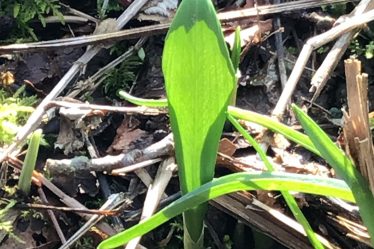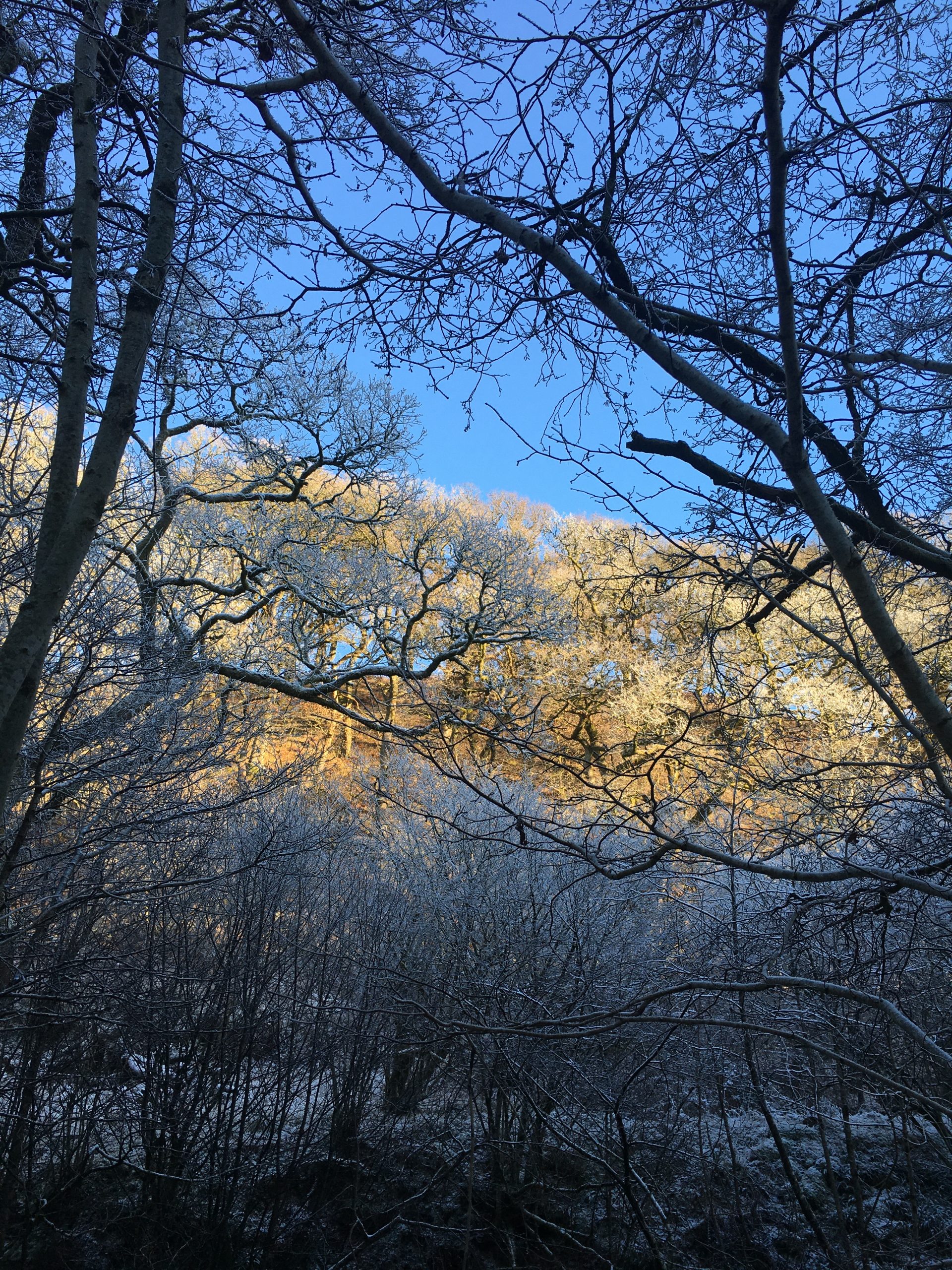
5th January 2023
Living as we do surrounded by deciduous woodland of Oak, Elder, Hazel, Birch and White Willow as well as other tree and shrubs species, we are incredibly lucky to see the winter phenomenon known as Hair Ice (also known as Ice Wool or Frost Beard). This is an unusual and rare ice that forms on wet dead wood and is triggered when a specific type of fungus called Exidiopsis effusa is exposed moist air and a temperature slight below 0 °C. It is also generally confined to latitudes between 45°N and 55°N.
One of the first records of the phenomenon was made by Alfred Wegener (the discoverer of continental drift) in 1918. He observed a strange ice forming only on wet dead wood and proposed a theory that a specific fungi must be the catalyst for the smooth, silky hairs of ice. To read more about how the ice is formed follow this link.
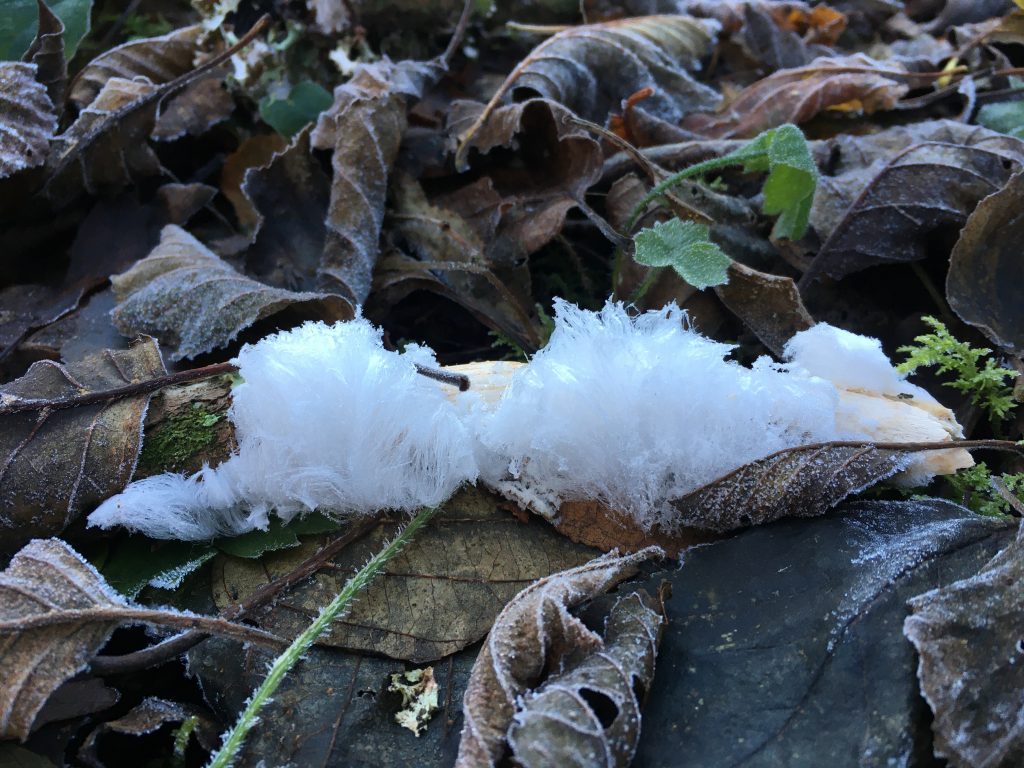
We’re also very fortunate to have an abundance of wildlife right outside our door. We’ve now counted at least 26 different species of wild birds and wild fowl in and around our garden. Roe Deer and Brown Hare make frequent appearances in the wood and on the hill opposite and we’re blessed with bats, beetles, bees and butterflies as well as myriad mini-beasts.
One of the books we use to identify all the birds that visit is:
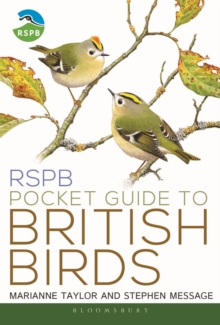
Although being in Scotland, we also refer to this book too..
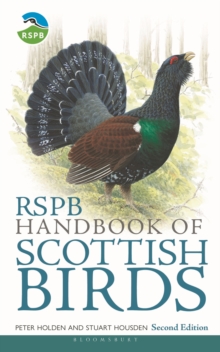
Don’t forget that this years Big Garden Bird Watch takes place on 27th-29th January; click on the link to sign up. We’ll be taking part too.
28th Dec 2022
The Book Warren Bothy is situated just down from the magical Mennock Pass and from which the current location is taken however back in the mists of time, it was known as Dalpeddar Cottage.
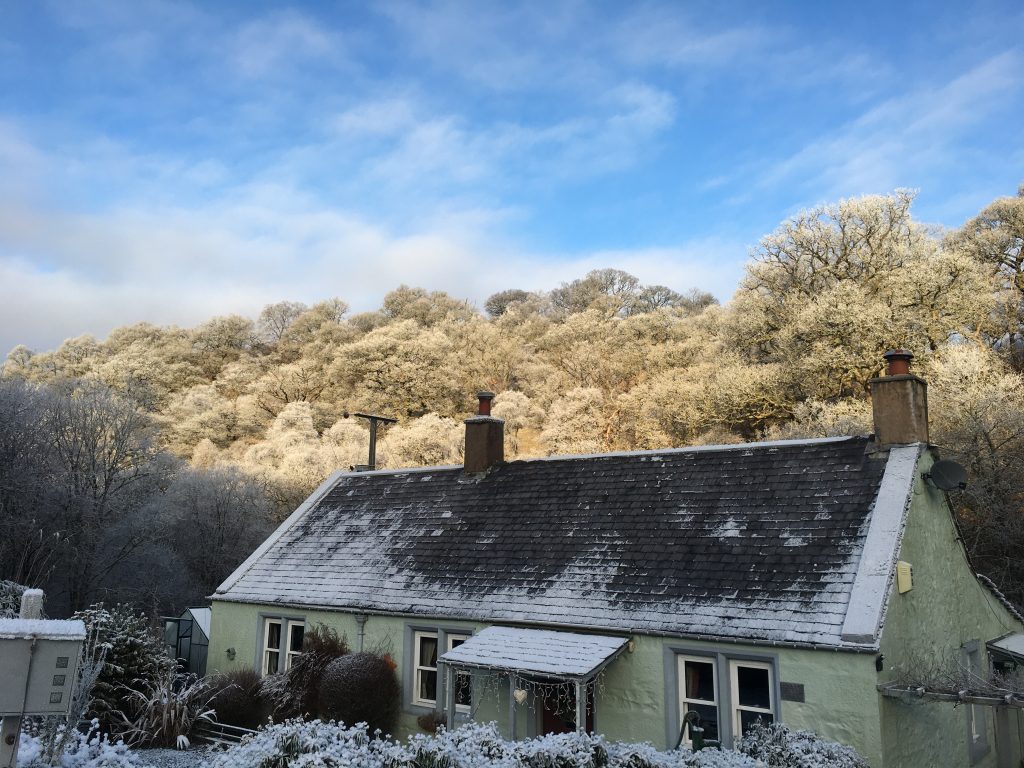
An interesting name? Dalpeddar may be referring to the Valley of St Peter; Professor W. J. Watson in “The Celtic Place-Names of Scotland” explains –
In Wales, Cornwall and Britanny, the term dol ‘meadow, dale, valley’ is common in names of places. In Scotland it was also common, appearing in the older forms of our place-names as Dol, Dul later Dal. In Gaelic pronunciation of the present day, initial Dal is always dail in the west and usually in the east.
Dol, Dul, is found but uncommonly with the names of saints, indicating an old church or site or land gifted to the church.
The Scottish Gaelic Peadar is said to be reserved for the saint, and the Scottish Gaelic Pàdraig. It is a variation of the name Peter and Peddar is a probable variation of this.
Situated on the bank of the Mennock Water in the Southern Uplands, Dalpeddar Cottage has been recorded on maps and in records for over 220 years and at various times has been a Shepherds house, home to a blacksmith and housed a man who looked after the local section of the railway. Dalpeddar Farm near by has a long history going back many centuries.
Dorothy Wordsworth (sister of the Romantic Poet William) in her ‘Recollections of a Tour Made in Scotland AD1803‘ wrote of Dalpeddar Cottage:
Soon after leaving the turnpike house we turned up a hill to the right, the road for a little way very steep, bare hills, with sheep.
After ascending a little while we heard the murmur of a stream far below us, and saw it flowing downwards on our left, towards the Nith, and before us, between steep green hills, coming along a winding valley. The simplicity of the prospect impressed us very much. There was a single cottage by the brook side ; the dell was not heathy, but it was impossible not to think of Peter Bell’s Highland Girl‘.(as described in Peter Bell – A Tale in Verse (Part Third) by William Wordsworth).
Brothers Andrew and William Rodger were killed during 1918 and both had lived at Dalpeddar Cottage, Private Andrew Rodger (service number G/52864) 19th Bn London Regiment who died 1st September 1918, he was 20 years old and is commemorated at the Vis-en-Artois British Cemetery, France. Private William Rodger (service number 51318) 16th Bn Royal Scots died 16th April 1918 and is commemorated at the The Ploegsteert Memorial, Belgium, he was 19. Both were also commemorated on the Mennock War Memorial and which was itself created as part of the Bravest Village award when in 1915, Mennock came second recording that of the 17 men who had answered Kitchener’s call in the first few months of the war, none returned.
And it is from this most special of places that The Book Warren operates and where its bewitching charms inspire our literary choices as well as introducing you to a fascinating region often overlooked as travellers speed north.
Our next entry in the Dalpeddar Diaries will explore the amazing variety of wild birds; recommendations for making the most of seasonal winter ingredients and looking forward to celebrating both the Chinese new year and Burn’s Night!

